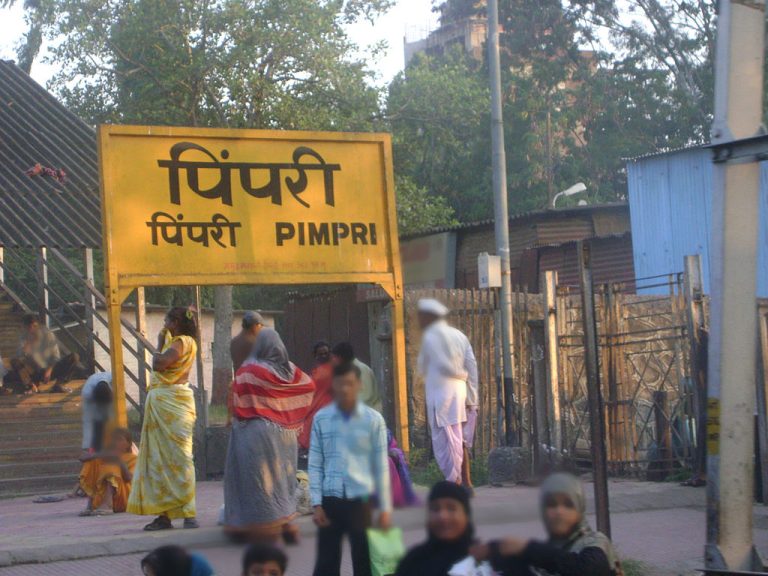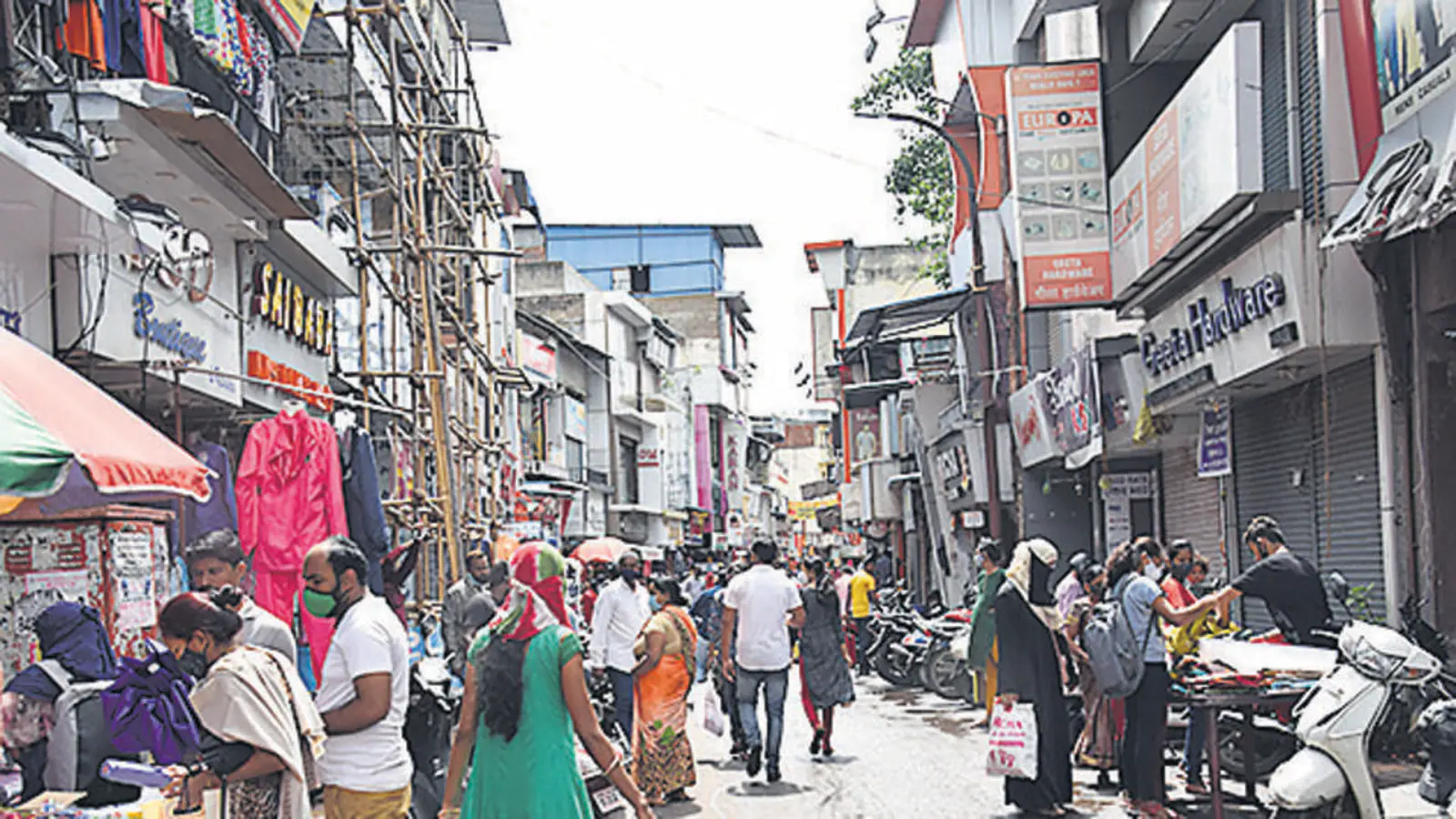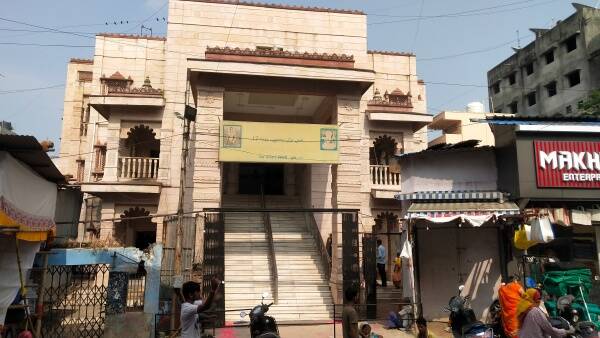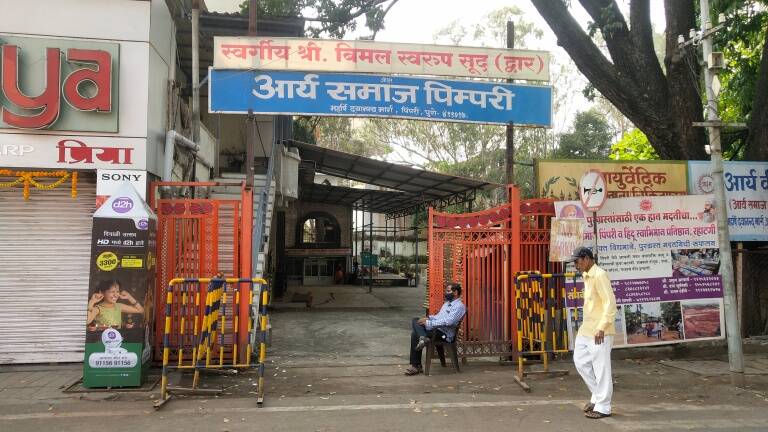
The Partition brought with it untold stories of human misery as families had to leave their ancestral lands. The young nation had to grapple with people who lost everything and had to start over. Pimpri and Ulhasnagar in Mumbai were selected as the places to set up camps for these refugees.
Parthasarathi Biswas | Pune
Any train journey between Pune and Mumbai is incomplete without hawkers selling peanuts or chikkis in their raucous voices. What many might not know is that the practice was started by migrant Sindhis trying to eke out a living after the Partition in 1947. Pimpri, the present-day chaotic and bustling marketplace, was one of the areas where the nascent government chose to settle the refugees, many of whom were forced to migrate with just a pair of clothes. What they did have, though, was their sense of entrepreneurship and the sheer will to survive in conditions which, at best, could be termed hostile.
 Pimpri: From cattle shed to refugee colony
Pimpri: From cattle shed to refugee colony
The Partition of India saw the sub-continent being divided into two new nations. Punjab and the undivided Bengal saw an exodus of refugees with Hindu Sindhis and Bengalis coming from the other side of the border, while Muslim Indians crossed over from here.
The Partition brought with it untold stories of human misery as families had to leave their ancestral lands. The young nation had to grapple with people who lost everything and had to start over. Pimpri and Ulhasnagar in Mumbai were selected as the places to set up camps for these refugees.
 Victor Barnouw, in his book ‘The Sindhis, Mercantile Refugees in India: Problems of their Assimilation’ estimates that in 1941, of the 45.35 lakh Sindhi population as many as 12.29 lakh were Hindus. Drawn mainly from the trading community, the refugees were from mixed socio-economic backgrounds but were strung together by the common thread of Partition. Pimpri, back then, was an abandoned military camp and dairy farm. Author and historian Saaz Aggarwal refers to newspaper clippings of 1948 which talk about the visit of the then Premier of Bombay Province, BG Kher, to the Pimpri refugee camp. A general panchayat of the refugees demanded conversion of the camp into a municipality complete with proper civic utilities.
Victor Barnouw, in his book ‘The Sindhis, Mercantile Refugees in India: Problems of their Assimilation’ estimates that in 1941, of the 45.35 lakh Sindhi population as many as 12.29 lakh were Hindus. Drawn mainly from the trading community, the refugees were from mixed socio-economic backgrounds but were strung together by the common thread of Partition. Pimpri, back then, was an abandoned military camp and dairy farm. Author and historian Saaz Aggarwal refers to newspaper clippings of 1948 which talk about the visit of the then Premier of Bombay Province, BG Kher, to the Pimpri refugee camp. A general panchayat of the refugees demanded conversion of the camp into a municipality complete with proper civic utilities.

Barnouw, whose book narrates the condition of the camps in the 1950s, talks of cattle sheds being converted into refugee camps. The camp had four sections depending on the accommodations granted to the refugees who were asked to pay a nominal rent for the same. Given the egalitarian nature of the society, Barnouw had particularly talked about the absence of any caste-based discrimination in the camp.
The living conditions there could be described as primitive. Aggarwal’s book ‘Sindh, Stories from a Vanished Homeland’ narrates first-hand the experience of the Arya brothers who went on to start the now-iconic Venus Traders in the city. “We were given free rations, and accommodation in the enclosure where the army animals – horses, cows, and buffaloes – were once kept. When we slept at night, scorpions would sting us. We cooked in the same space where we ate, and went down to the river to bathe” was how Kishinchand narrated his experience.
Influence of Arya Samaj
Arya Vidya Mandir, a famous school in the locality, owes its origin to the Arya family. Back in those days, Kishinchand’s father started an Arya Samaj in a small, temporary tin-and-stone shed. The Arya Samaj’s message of a casteless society as well as opposition to child marriage played an important role in shaping the refugees. What started as a temporary shed has now developed into a sprawling library with over 15,000 books. The school also had its origins in the shed started by the Arya family.

Today, Pimpri can well be called the wholesaler’s paradise having everything from clothes to carpets. The consumer is expected to get a good deal in the shops that line the main market area. The origin of this lies in the entrepreneurial spirit that the refugees got with them. Aggarwal narrates how the refugees got a vending license and started selling goods on trains between Pune and Mumbai. In fact, efforts were made to assimilate the refugees in the factories which had come up along the Pune-Mumbai Highway, but very few warmed up to the prospect. Barnouw mentions tension between the local traders and the Sindhi communities as the latter reportedly undersold their wares to earn a profit.
What started as a temporary refugee camp at the time of Independence was, by the 1950s, converted into a regular colony by attaching over 200 acres of land. Soon, this predominantly Sindhi locality saw internal migration from other parts of the country to seek out a fortune in factories in the neighborhood. Now, Pimpri is a melting pot of cultures with a distinct Sindhi flavor in the air. From roadside shops selling dal pakwan to the temple of Jhulelal, this bustling marketplace still holds on to its past when penniless refugees arrived here to start their lives anew.
___________________
Courtesy: Indian Express